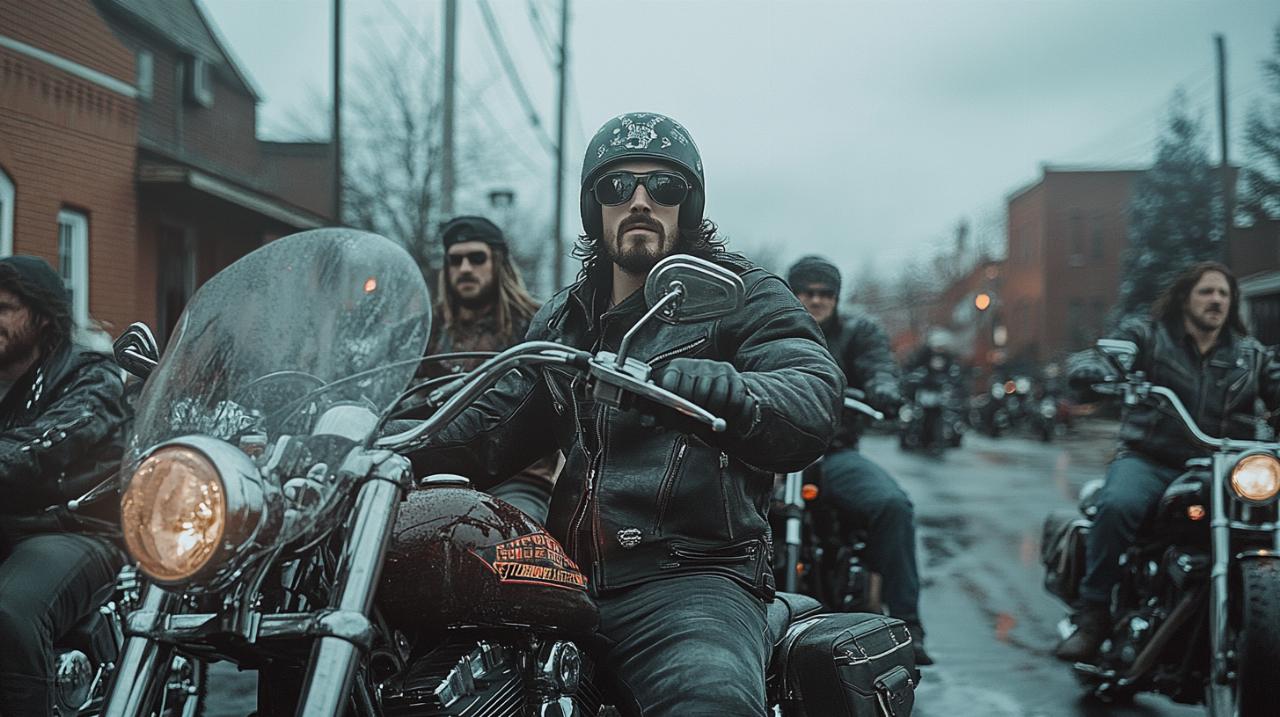Few television dramas have left quite the same mark on audiences as Sons of Anarchy, a programme that not only captivated viewers with its visceral storytelling but also embedded itself in the cultural consciousness through its razor-sharp dialogue. The show, which followed the lives of an outlaw motorcycle club navigating loyalty, family, and violence, resonated far beyond its plot twists and dramatic set pieces. The words spoken by its characters became mantras, shared across social media platforms, quoted in everyday conversation, and dissected by fans who saw in them a reflection of broader human truths. This exploration seeks to understand how these utterances transcended the screen and became part of the modern lexicon, shaping not just how people talked about the series but how they thought about themes of brotherhood, morality, and personal reckoning.
The Most Memorable Lines from Sons of Anarchy and Their Resonance
The genius of Sons of Anarchy lay not merely in its narrative ambition but in the way its writers crafted dialogue that felt both authentic and profound. Under the guidance of creator Kurt Sutter and a talented writers' room, the series balanced grit and introspection, humour and heartbreak, in a manner that elevated its characters beyond archetypal biker rebels. Each episode was peppered with moments where words carried as much weight as the violent confrontations or the roaring engines of Harley-Davidsons. As fans often discovered when visiting this website or similar platforms dedicated to the show's legacy, the lines were not just quotable but deeply philosophical, offering insights into human nature that invited reflection long after the credits rolled.
Iconic Quotes That Defined a Generation of Television
Among the many memorable utterances that emerged from SAMCRO's clubhouse, certain lines stood out for their ability to encapsulate complex emotions and moral dilemmas in just a few words. These were not throwaway bits of banter but carefully constructed reflections on loyalty, family, and the cost of choices. One such line, delivered by the character Hale, captures the essence of this thoughtful approach. He remarked that anger clouds judgement and leads us to actions we later regret, things we can never take back. This sentiment, simple yet profound, resonated with audiences because it articulated a universal truth about the consequences of impulsive decisions. It was a reminder that even in a world defined by violence and lawlessness, the characters grappled with their humanity and the weight of their actions.
The show's dialogue often walked a fine line between poetry and bluntness, reflecting the dual nature of its characters. They were men and women capable of brutal violence yet equally capable of deep love and vulnerability. This duality was mirrored in the way they spoke, whether it was a tender confession between family members or a defiant proclamation in the face of an enemy. The writers understood that language could be both a weapon and a balm, and they wielded it with precision. As a result, fans found themselves returning to these lines, quoting them in moments of personal reflection or sharing them on social media as expressions of their own beliefs and experiences.
How samcro's philosophy shaped viewer perspectives
The philosophical underpinnings of Sons of Anarchy were never far from the surface, and the show's dialogue frequently ventured into territory that challenged viewers to reconsider their assumptions about morality and justice. The club's code, though often violent and self-serving, was presented with a kind of internal logic that made it compelling. Characters spoke about loyalty as an absolute, about family as something worth dying for, and about honour even in the most dishonourable circumstances. These themes were not presented uncritically, but they were given voice in ways that made audiences ponder the grey areas of ethical decision-making.
Many viewers found that the show's exploration of family, both biological and chosen, spoke to their own lives. The bonds between members of SAMCRO were depicted as unbreakable, forged through shared struggle and mutual dependence. This portrayal resonated with those who valued loyalty and community, even as the show laid bare the destructive potential of such devotion. The dialogue became a vehicle for exploring these tensions, with characters articulating fears and hopes that felt genuine and relatable. In this way, Sons of Anarchy did more than entertain; it prompted conversations about what it means to belong, to protect, and to sacrifice.
The Lasting Influence of Sons of Anarchy's Dialogue on Popular Culture
 The impact of the show's writing extended well beyond the confines of its seven-season run. As episodes aired and were subsequently devoured through streaming services, fans began to adopt the show's vernacular, incorporating its phrases into their own speech and online interactions. This phenomenon was not unique to Sons of Anarchy, but the fervour with which its audience embraced the dialogue set it apart. The show's exploration of anger, judgement, and the bonds of family found a ready audience in a culture grappling with similar themes, and its quotes became shorthand for complex emotions and ideas.
The impact of the show's writing extended well beyond the confines of its seven-season run. As episodes aired and were subsequently devoured through streaming services, fans began to adopt the show's vernacular, incorporating its phrases into their own speech and online interactions. This phenomenon was not unique to Sons of Anarchy, but the fervour with which its audience embraced the dialogue set it apart. The show's exploration of anger, judgement, and the bonds of family found a ready audience in a culture grappling with similar themes, and its quotes became shorthand for complex emotions and ideas.
From screen to street: phrases that entered everyday vernacular
It is one thing for a television programme to be popular; it is quite another for its language to seep into the fabric of everyday conversation. Sons of Anarchy achieved the latter through a combination of sharp writing and deeply relatable themes. Phrases about loyalty, the cost of anger, and the importance of family became part of the vernacular for many fans, who saw in them a reflection of their own values and struggles. Whether shared in a text message, posted on a blog, or scrawled on a poster, these words took on lives of their own, detached from their original context yet retaining their emotional resonance.
The show's ability to articulate the unspoken made it a cultural touchstone. Fans did not merely watch Sons of Anarchy; they engaged with it, dissecting its themes and debating its morality. This engagement was fuelled by the dialogue, which provided endless fodder for discussion and interpretation. On forums and fan sites, debates raged about the true meaning of certain lines, about whether the characters' actions could be justified, and about what the show ultimately said about human nature. In this way, the series transcended its status as entertainment and became a subject of genuine cultural analysis.
The Role of Social Media in Amplifying the Show's Most Powerful Words
The rise of social media platforms coincided with Sons of Anarchy's peak popularity, and this timing proved fortuitous for the show's cultural reach. Fans took to sites such as Twitter and Facebook to share their favourite quotes, often pairing them with images from the series or personal reflections on their meaning. This practice transformed the show's dialogue into a form of communal expression, a way for viewers to connect with one another over shared appreciation and understanding. Memes featuring SAMCRO members alongside their most memorable lines proliferated, spreading the show's influence far beyond its original audience.
Philosophy blogs and entertainment websites dedicated significant space to dissecting the show's themes, with many highlighting the sharpness of its writing as a key reason for its enduring appeal. Even when the plot meandered or stretched credibility, the dialogue remained a constant, anchoring the series and giving fans something to hold on to. This consistency was crucial in building a loyal following, one that continued to engage with the show years after its final episode aired. The amplification provided by social media ensured that even those who had never watched a single episode were familiar with its most iconic lines, a testament to the power of well-crafted language in the digital age.
As the years pass, the cultural footprint of Sons of Anarchy shows no signs of fading. Its quotes continue to be shared, debated, and celebrated, a lasting reminder of a programme that understood the importance of words as much as action. In a television landscape crowded with content, the show's dialogue remains a benchmark for what can be achieved when writers commit to depth and authenticity, and its influence on popular culture stands as proof of the enduring power of a well-turned phrase.

